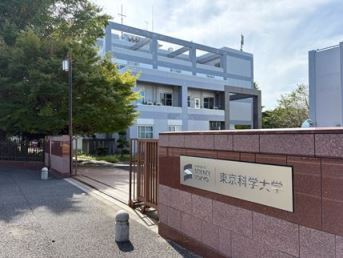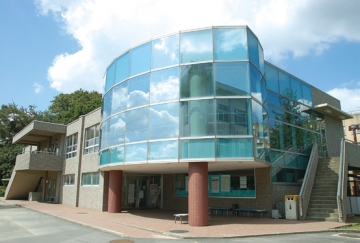Tokyo Institute of Technology (Tokyo Tech) and Tokyo Medical and Dental University merged to form Institute of Science Tokyo (Science Tokyo) on October 1, 2024. The information on this site concerns the Institute for Liberal Arts (ILA) at Konodai Campus. For information regarding ILA at Ookayama Campus, visit the website of the former Tokyo Tech, Institute for Liberal Arts (https://educ.titech.ac.jp/ila/). All information on this site is valid as that of Science Tokyo.
About the ILA Konodai
All medical and dental students matriculated at Science Tokyo spend their first year at the Konodai Campus (see Access Map). Post-first-year courses are also provided at the Yushima Campus. At the Konodai Campus, students encounter a variety of ideas in and beyond their specific majors, and forge friendships that may last a lifetime.
For the number of students at Konodai Campus, please see the Number of Undergraduate Students for each fiscal year in The Statistical Data pages. All the first year students, and the students transferring into the post-first year program of Oral Health Care Sciences from other institutions, are included.
Philosophy and Aims
Philosophy
We cultivate health professionals who have the intellectual capacity to appreciate diverse cultures and values and the emotional capacity to understand and empathize with others, in order that they can thereby contribute to a global society.
Aims
Following this philosophy, our curriculum combines liberal arts education and pre-health education. This curriculum aims to help students:
1. To develop as civic-minded professionals who can participate in a global society
2. To develop the scientific and analytic mindset needed both to identify and solve problems
3. To acquire the communication skills required to contribute to the global healthcare profession
4. To acquire the strong foundation needed to support future study

Hippocrates Hall

Champ de Causerie
Education Outline and Program Highlights
Students at the Konodai Campus take a mix of required courses and electives. These include the basic courses in Humanities, Social Sciences and Natural Sciences which students need in order to become full-fledged members of the international healthcare community. In these courses, students learn about the ethical standards of the healthcare profession, develop their understanding of societal and natural issues, discover how to motivate themselves in research and problem solving, and improve their ability to communicate with others.
Humanities and Social Sciences
Through Philosophy, Literature, Sociology, and other courses, students acquire basic knowledge in the Humanities and Social Sciences and learn different methodologies to build a foundation for future study in their fields and for post-first-year courses. Students can also select from a variety of seminars designed to give them the opportunity to conduct research and write essays on topics they choose for themselves.
Natural Sciences
In Mathematics, Physics, Chemistry, and Biology courses, students learn how the different methodologies aim to understand nature, and in doing so build a strong foundation for future study in their fields. They acquire basic knowledge, and are trained in logical thinking and scientific skills through lecture courses and lab work. Introductory classes are provided for students who have not taken high-school Physics, Chemistry, or Biology.
Foreign Languages
Through the study of English as well as French, German, Spanish, or Chinese, students obtain skills required for successful international communication. In the process of doing so, students deepen their understanding of other societies, cultures, and values. Where English courses are concerned, students are streamed according to proficiency.
Fitness Management
Through "Total Fitness" lectures and physical training, students build awareness of the proper functioning of their own bodies. Health professionals need to learn how to manage their own bodies before they can make determinations about or perform procedures on the bodies of others. The Fitness Management course helps students to acquire this ability.
Visionary Project
All first-year students at Science Tokyo take a "Visionary Project" course at Ookayama Campus on Mondays for their first quarter. Students listen to a variety of lectures and engage in small group discussions. The "Visionary Project" thereby aims to provide students with a foundational liberal arts education and to strengthen their humanity, sociability and creativity, encouraging them to think deeply about themselves and their "visions" for the world.
Post-first-year courses
The ILA Konodai also offers post-first-year courses at the Yushima Campus.
Teaching Staff
The professors of the ILA Konodai are responsible for the education at the Konodai Campus.



